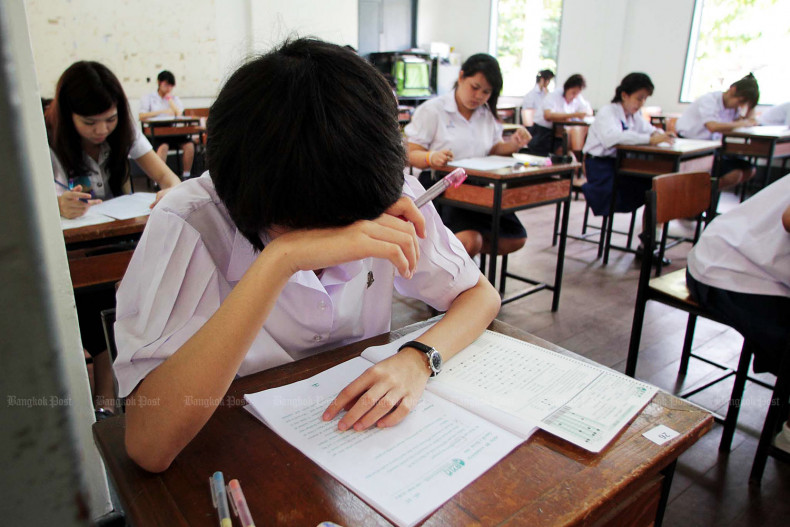 Mandatory English tests for students at Thai universities
Mandatory English tests for students at Thai universities
University students must have their English language skills tested and meet Common European Framework of Reference for Languages (CEFR) standards before they can graduate, according to the government.
Each university can design its own tests, but the assessment must comply with CEFR standards, said government spokesman Chai Wacharonke.
CEFR is an international standard for describing language ability with language proficiency on a six-point scale, from A1 for beginners up to C2 for those who have mastered a language.
Mr Chai said that to pass the compulsory test, those pursuing a diploma must achieve at least a B1 level, while bachelor’s degree students must have a minimum B2 level and postgraduate students at least a C1 status.
Prime Minister Srettha Thavisin, ordered the test to be implemented on Nov 28. He wants measures put in place promptly to elevate the English-language skills of university students nationwide. The Ministry of Higher Education, Science, Research and Innovation is acting on the premier’s order, instructing universities to adopt the test.
The spokesman said universities are obligated to set clear guidelines and provide training to students to prepare them for life after graduation.
English language courses must contain clear and credible assessment criteria. Also, extracurricular, language-enhancement activities are to be organised for students, with effective teaching mediums to be procured for use both in online and offline settings by the universities.
Mr Chai said more opportunities should be opened for university students to improve their English language abilities. “The policy centres on ramping up the [university students’] English proficiency across all aspects.
“The prime minister is keen to see the development of a quality human resource that is well-suited to the job market with a globally recognised standard of language ability,” Mr Chai said.
Fluency in the English language would be beneficial to tourism, trade, investment and research, he added.
The English test in universities is being launched after Mr Srettha was taken aback by the results of the latest Organisation for Economic Co-operation and Development’s Pisa test, which saw Thai students’ scores hit 20-year lows. The result was reported last month.
Thailand was one of seven countries with an already deteriorating reading performance before the pandemic. That group also includes Costa Rica, Finland, Iceland, the Netherlands, the Slovak Republic, and Sweden, the Pisa test showed.
Mr Srettha said last month, many people had criticised Thai education for its poor quality, particularly in terms of curriculum and teacher quality, but no one has taken serious action to fix it.
Source: https://www.bangkokpost.com/thailand/general/2730885



